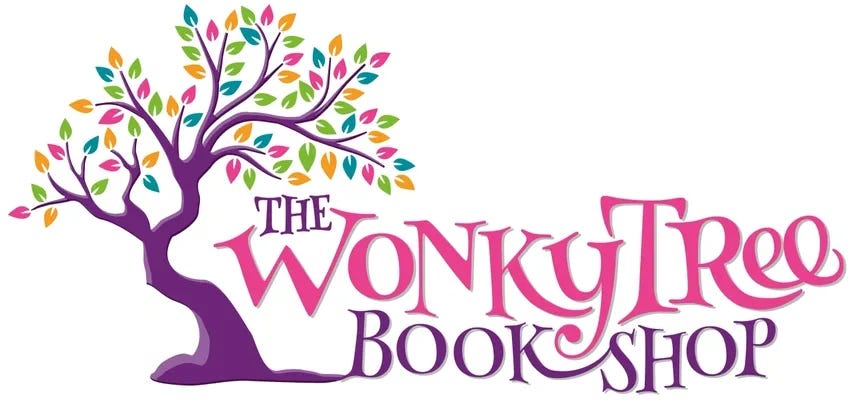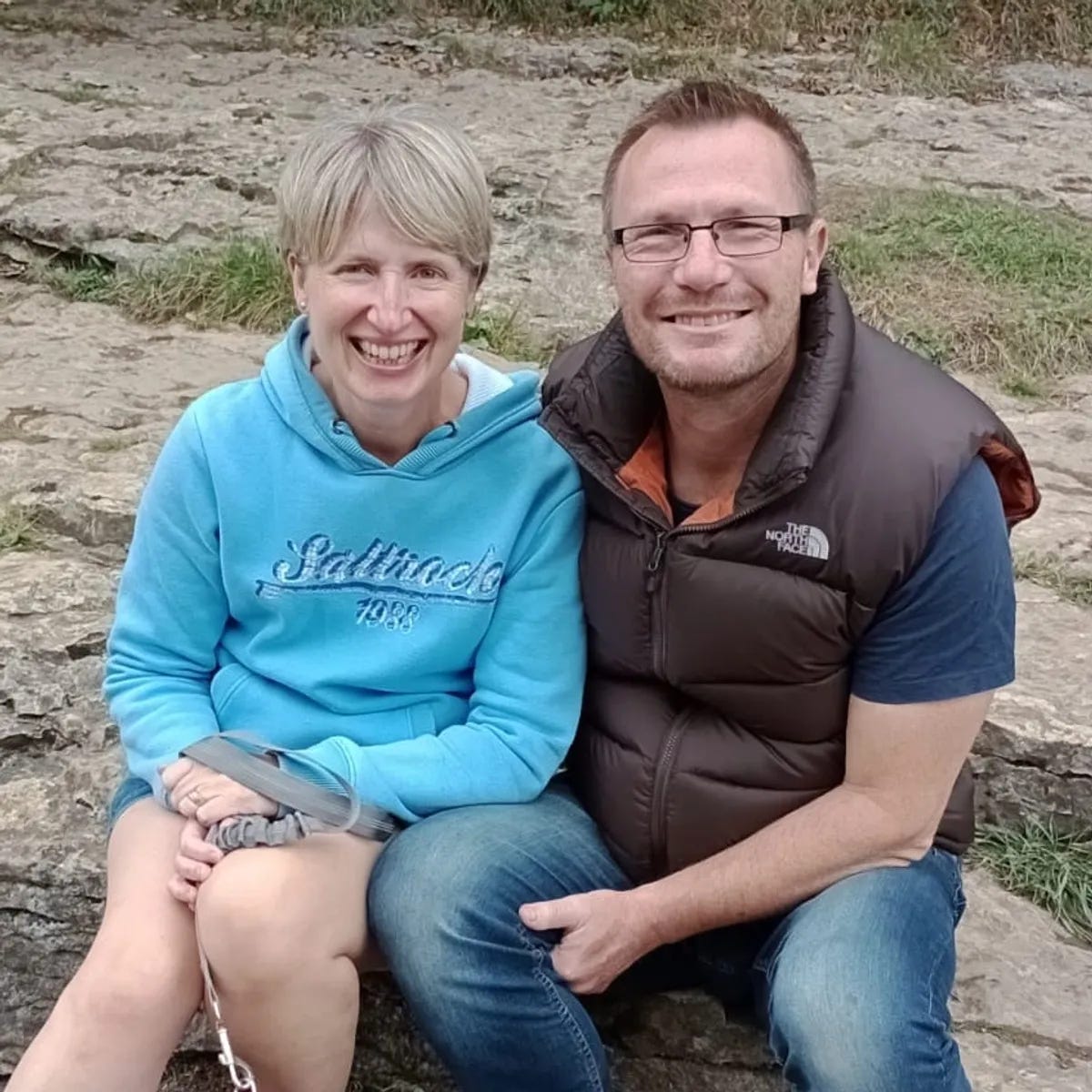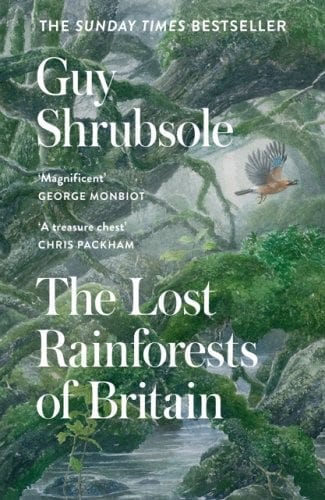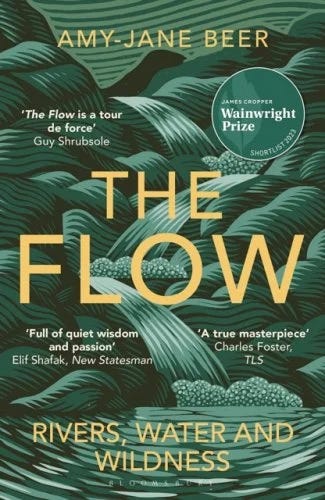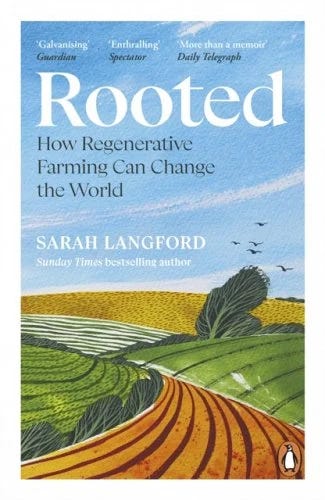Lost rainforests, flowing rivers and regenerative farming
Be inspired with this month's recommendations for readers with an eco bent
Good morning! I’m Sarah Hartley and this is The Northern Eco weekly update. As you’ve received this newsletter then either you subscribed or someone forwarded it to you. If the latter, then you can click on this handy little button below.
Today’s newsletter is a bit different, instead of my news picks, Claire and Alan from The Wonky Tree in Leyburn are giving you the first of their monthly recommendations of what to read if you’ve a green heart or want a gift for someone who has.
So let me introduce them…..
The couple have been based at the bottom of the market place for just over a year and cheered up that corner of the town with their bright displays and outdoor seating area.
It was their long-held dream to open an independent bookshop after spending 30 years working for others and now they’ve established book clubs, events and more from their North Yorkshire base.
They’ve also been actively supporting tree planting by donating a proportion of all book sales to JUST ONE Tree - a non-profit initiative removing CO2 from the atmosphere and reversing biodiversity loss through global reforestation.
To date The Wonky Tree Bookshop’s forest stands at 915 trees which will absorb about 282 tonnes of CO2 as it grows.
Why is it called ‘The Wonky Tree’?
Prior to relocating up north, the couple lived on a Devon smallholding, peacefully situated at the end of a long farm track.
“We were often difficult to find. Luckily, at the start of the track a tree grew at a quirky angle, and it could be seen from some distance.
The tree became a point of reference, ‘Look for the wonky tree’ we’d say to people ‘and you’ll find us.’ Our wonky tree helped unite us with friends, family, and happy times. We couldn’t think of a more fitting name for our bookshop.”
Here’s their picks for October. We hope you enjoy them. If you wish to purchase any of them you can order by post via the links in the headlines below.
Happy reading! I’ll be back next Tuesday.
The Lost Rainforests of Britain by Guy Shrubsole
Temperate rainforest may once have covered up to one-fifth of Britain, inspiring Celtic druids, Welsh wizards, Romantic poets, and Arthur Conan Doyle's most loved creations. Though only fragments now remain, they are home to a dazzling variety of luminous life-forms. In this awe-inspiring investigation, Guy Shrubsole travels through the Western Highlands and the Lake District, down to the rainforests of Wales, Devon, and Cornwall to map these spectacular lost worlds for the first time.
This is the extraordinary tale of one person's quest to find Britain's lost rainforests - and bring them back.
“We have chosen this book because it was this year’s winner of the Wainwright Prize for conservation writing. Guy strives through his writing to ensure that these under-recognised eco-systems do not become eradicated from the landscape and our memory.”
The Flow: Rivers, Water and Wildness by Amy-Jane Beer
A visit to the rapid where she lost a cherished friend unexpectedly reignites Amy-Jane Beer's love of rivers setting her on a journey of natural, cultural and emotional discovery. On New Year's Day 2012, Amy-Jane Beer's beloved friend Kate set out with a group of others to kayak the River Rawthey in Cumbria.
Kate never came home, and her death left her devoted family and friends bereft and unmoored.
Returning to visit the Rawthey years later, Amy realises how much she misses the connection to the natural world she always felt when on or close to rivers, and so begins a new phase of exploration. The Flow is a book about water, and, like water, it meanders, cascades and percolates through many lives, landscapes and stories.
“This book won the 2023 Wainwright Prize for Nature Writing and has been described as ‘unparalleled’, ‘quietly courageous and ‘honest, raw and moving’.”
Rooted: How Regenerative Farming Can Change the World by Sarah Langford
When barrister and author Sarah Langford left her city life behind she found herself unexpectedly back in the world of farming. It was not how she remembered.
Instead, she saw farmers dealing with very different problems to those faced by her grandfather, considered a hero for having fed a starving nation after war. Now farmers faced accusations of ecological mismanagement by a hostile urban media whilst battling extreme weather and political upheaval. Yet as Sarah learned how to farm and grew closer to the land, she discovered a new generation on a path of regenerative change.
In Rooted, Sarah weaves her own story around those who taught her what it means to be a farmer. She shines a light on the human side of modern farming, and shows how land connects us all, not only in terms of global
sustainability but in our relationships with our physical and mental health, our communities and our planet.
“This too was shortlisted for the Wainwright Prize for Nature Writing. It is a timely book and particularly important for an area with farming at its heart. Farming faces unprecedented challenges today and the future of agriculture in Britain has surely never been more important?”
Have you read any of these books? We’d love to hear what you thought of them in the comments below.




